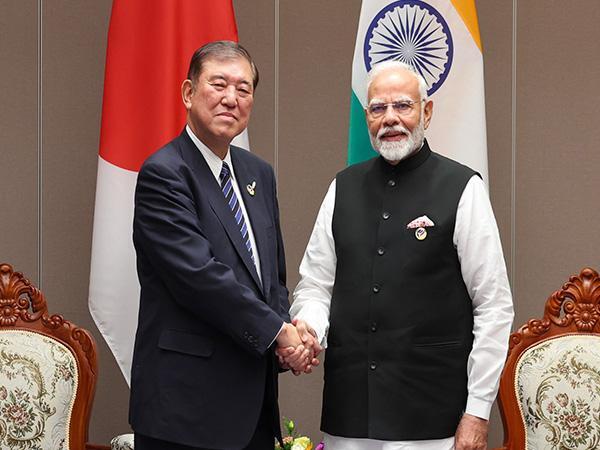
Our Technology & India’s Talent Complement Each Other: Japan PM
The India-Japan Joint Economic Forum, a significant event that brings together the business leaders and policymakers of both nations, recently took place with Prime Minister Narendra Modi and Japanese Prime Minister Shigeru Ishiba in attendance. During the forum, Ishiba made some notable comments that highlighted the growing economic ties between Japan and India, stating that the country’s advanced technology and India’s outstanding talent complement each other perfectly, leading to a dramatic expansion of their economic relationship.
“It is a very natural combination,” Ishiba said, emphasizing the synergy between Japan’s technology and India’s human resources. “Many Japanese companies are playing a key role in Make in India…They are working together on the construction of Mumbai-Ahmedabad High Speed Rail,” he added, pointing to one of the most significant joint projects between the two nations.
The comments made by Ishiba are a testament to the growing importance of the India-Japan economic partnership. Over the years, both nations have been working together to strengthen their ties, and the results have been impressive. In recent times, Japan has been one of the largest foreign investors in India, with many Japanese companies setting up operations in the country.
The partnership between Japan and India is built on the principles of mutual respect, trust, and cooperation. Both nations recognize the importance of each other’s strengths and are working together to leverage those strengths to the benefit of both countries. Japan’s advanced technology and India’s outstanding talent are a perfect example of this synergy.
Japan is known for its cutting-edge technology, particularly in the fields of electronics, automobiles, and robotics. The country is home to some of the world’s largest and most innovative companies, such as Sony, Toshiba, and Honda. India, on the other hand, has a large pool of talented engineers, developers, and professionals who are highly skilled in various fields.
The combination of Japan’s technology and India’s talent has led to some impressive joint projects. For instance, Japan’s Suzuki Motor Corporation has partnered with India’s Maruti Suzuki to produce cars in India. Similarly, Japan’s Toshiba has partnered with India’s Larsen & Toubro to work on various infrastructure projects.
The Mumbai-Ahmedabad High Speed Rail project, which Ishiba mentioned during the forum, is one of the most significant joint projects between Japan and India. The project involves the construction of a high-speed rail network that will connect the two cities, reducing travel time between them to just over an hour. The project is being implemented by the Japan International Cooperation Agency (JICA) and the National High-Speed Rail Corporation of India (NHSRCL).
The project is not only a testament to the growing partnership between Japan and India but also a symbol of the country’s commitment to infrastructure development. The Indian government has been working hard to improve the country’s infrastructure, and the High Speed Rail project is a significant step in that direction.
The comments made by Ishiba also highlight the importance of the Make in India initiative, which is a flagship program of the Indian government. The program aims to promote the growth of the country’s manufacturing sector by encouraging foreign companies to set up operations in India. Many Japanese companies have already taken advantage of the program, and the results have been impressive.
In conclusion, the comments made by Japan’s Prime Minister Shigeru Ishiba during the India-Japan Joint Economic Forum highlight the growing importance of the India-Japan economic partnership. The combination of Japan’s advanced technology and India’s outstanding talent is a perfect example of how two nations can work together to achieve great things. As the partnership between Japan and India continues to grow, we can expect to see even more impressive joint projects and economic collaborations in the future.



